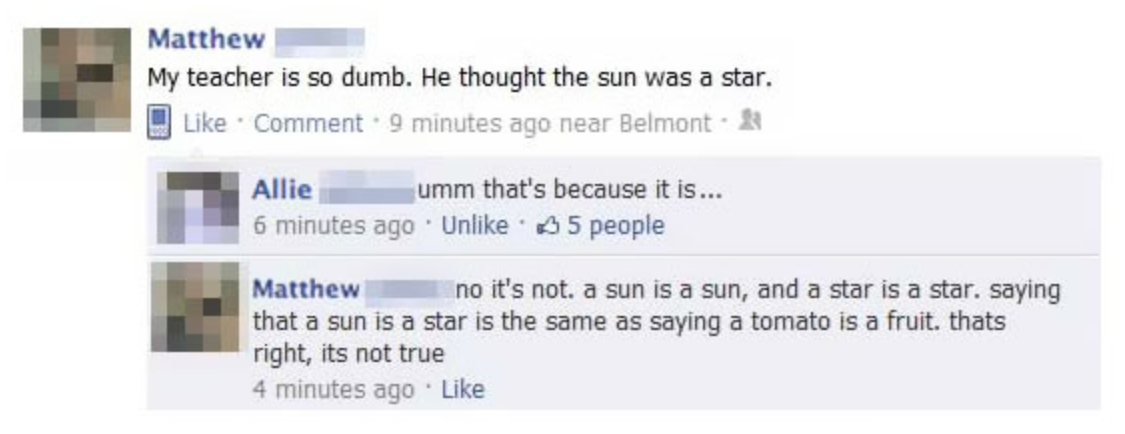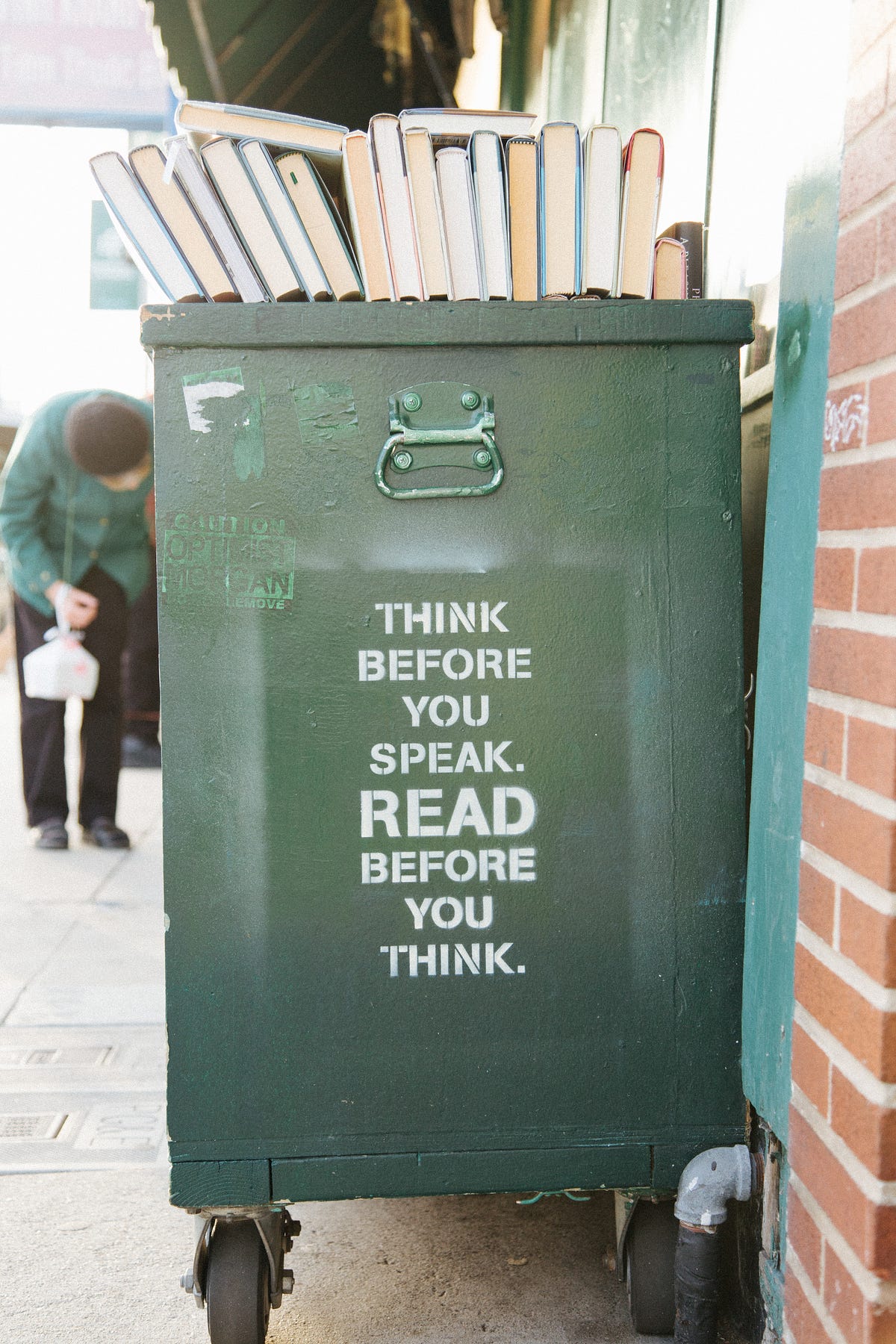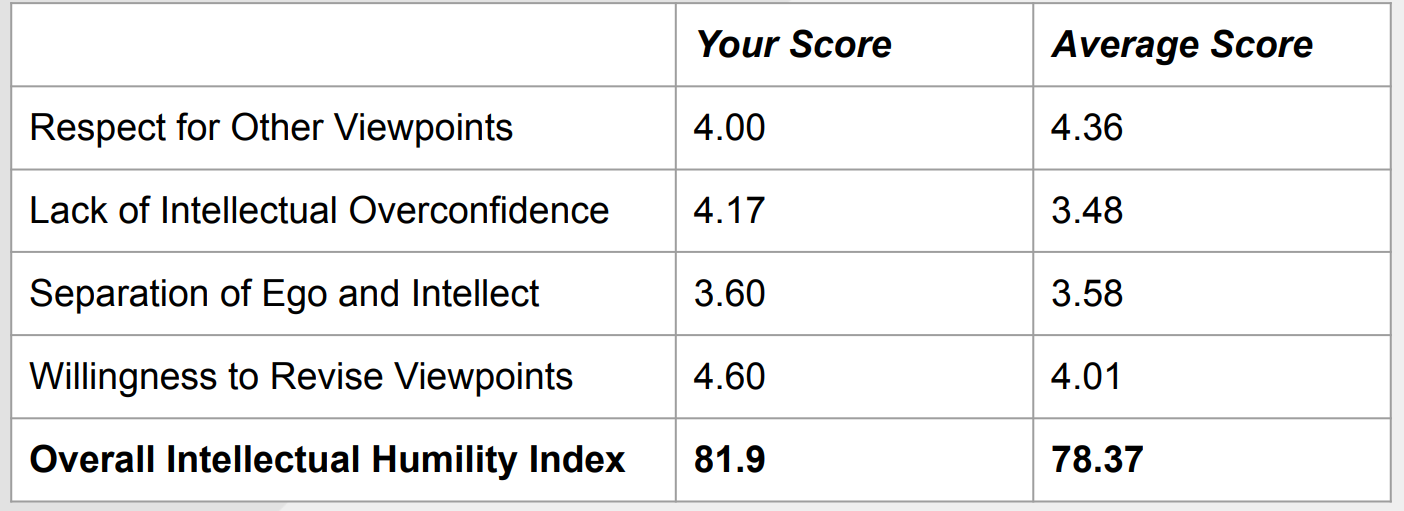Be humble and powerful

We have a problem in the modern world. There is an epidemic approaching one opinionated or offended response at a time. I think I know why.
We have grown to attach too much of our self-worth to our opinions. We seem to be forced to form a position and then hold it. This opinion-based divisiveness is everywhere; Republican or Democrat? Is the dress Gold and Blue? Hungry Jacks or McDonald’s? Pineapple on pizza? McDreamy or McSteamy (age check)? Breastfed or Bottlefed?
You are required to hold fast to one or the other, and not change your mind. Changing your mind is weak, sitting on the fence is weak-minded. If someone challenges your opinion with credible evidence and valid argument, shame starts to rise in you and you get defensive.
This needs to stop, it is caustic and inflammatory, we need to increase our mental flexibility. We need more humility.

Opinions are like Arseholes
“What’s your opinion on this?”
“That’s interesting, but I think you’re wrong.”
“I can’t believe you even think that!”.
It is made worse by the media, to many times I’ve seen a story that then gets thrown to some expert to back up their opinion in a short soundbite. In the age of social media, this has become tremendously stretched.
People are sharing links to random online content that supports their opinions and allow them to act like arseholes to those who are contradicting them. People are holding true to things that are blatantly wrong, take Matthew for example;

There is a proliferation of experts backed by loosely supported opinion and shoddy research. And…. We’ve given every single one of them a platform. A large portion of the globe is interconnected, and yet we choose to use this connection to find people who agree with us, rather than those who challenge us.
Wouldn’t it be nice to not be so dismissive of people? Wouldn’t it be more enjoyable to realize that people who offer a different perspective are valuable and not annoyingly stupid?
To get to this, you need to find some humility, to realize that you do not know everything, and your opinion is formed on the experiences, conversations, and information you have been exposed too. Which may not be every piece of information on the topic.
We do not seek contrary perspectives because we attach a part of our ego to the information we know. We are prideful of being right and dismissive of those that contradict this. I know I have fallen into this trap, and I probably will again.
I want you to think of the most humble person you know, what do they do that makes them humble in your eyes?
The most Humble person you know
Humility is not thinking less of yourself, it is thinking of yourself less — Rick Warren
This quote is widely misattributed to C.S. Lewis the author famous for his books The Chronicles of Narnia. The power of Google and a little research highlighted it as actually being from Rick Warren. I stumbled across it on my LinkedIn feed shared by a connection like this.
Humility is not thinking less of yourself, it is thinking of yourself less.
Be confident enough in your own awesomeness that you don’t think twice about creating opportunities for others, there are enough to go around — Shamsa Lea
The symmetry of the quote and the meaning packed behind it struck a chord with me. I could never have said it so eloquently, but the quote comes with power.
Shamsa expands and drives home the whole point of humility; Your success is not diminished by the success of others. Your knowledge is not dimmed by them. You have the option to create success for others, but only if you start thinking of them before yourself.
People confuse humility with not having high self-esteem, with being meek. It is believed that humble people are those with nothing to contribute. This is false.
The most humble people realize that all the things they do know highlight just how much they do not. They realize that their identity is not affected by other people’s words and actions, they are comfortable as themselves.
The most humble person is not the one being overly deferential to those with power and knowledge. It is not the person conceding every argument.
It is the person engaging in conversation with everyone, finding out about them and what they are interested in. What excites them. Drilling into their passions and making them feel important.
Then they will talk to the next person with the same enthusiasm. They seek to find as much information as they can about each person. They leave each person feeling like the most important person in the room.
These are the people with humility.
These humble people will be happy to engage in conversation with those of different opinions. If they find something in that conversation that seems credible, they will research it and if the evidence and information highlight that they were wrong.
They will change their position.
This is a virtue called intellectual humility, and we need more of it in the world.

Intellectual Humility
I am a balding, middle-aged man, just starting a second career and I am pretty smart. I’ve realized recently, that I am smart enough to know I don’t know that much.
At different times in my life, people have said to me that I am smart, when this happens you start to embody that as part of your identity. When this happens, you grow attached to it.
Now, if someone tries to prove me wrong, my ego kicks in. I am competitive as well which means I want to win. This concoction leads to a place far away from intellectual humility.
I want to get better at this, I’ve made some ground, but there is still room for improvement. That is why this quote hit me so hard. It is because I need to separate some of my attributes from who I am. I need to be Leon, not Smart Leon. I need more humility.
I was fortunate enough to find an amazing resource that explained intellectual humility and allowed me to do a test to find out what areas I can improve in; Shane Snows intellectual humility post and test.
Growing your Intelectual Humility
Read the link below, at least look at the pictures. Shane has done a typically amazing job of explaining something complicated. There is an Intellectual Humility test you can do there that scores you across five Intellectual Humility attributes.
The five Intellectual Humility attributes are;
- Respect for others viewpoints,
- Lack of intellectual overconfidence,
- Separation of Ego and Intellect,
- Willingness to revise viewpoints, and
- Openness to Experience
The first four apply directly to humility, the last one, details the fact that if you don’t do, see or hear anything new, you can not change your perspective on it.
Over 20,000 people have conducted this test and my scores were compared to their average. When I did the test, I scored in this way.

On average, the lowest scores are for too much confidence in your intellect, and inability to decouple ego and intellect.
People struggle with separating their ego from their intellect. People like to be smart, and they like to feel respected for their opinions. Further, many people are confident in their own intellect and trust themselves to have the right answers.
These are the weaknesses in our communities. People are not likely to admit they’re wrong, and even less likely to change their opinions. People will likely feel shame if they are proven to be wrong as their ego has been damaged.
These two aspects of Intellectual Humility are the cause of so much unrequired anger, frustration, and belittling.
The thing is, we can all get better at it. Self-awareness is the start. Understanding more about yourself and where you struggle is pivotal to changing how we interact with people.
It turns out, the key to increasing your intellectual humility, is exposing yourself to different things; travel, diverse crowds, new experiences with friends. All of these will give you a different perspective if you choose to let it.
As Shamsa said in her LinkedIn post, we have a choice to think of the opportunities we are creating for others. The world does not revolve around us, we have a choice to create positivity for those we interact with.
Do not be afraid of lifting others up, do not be afraid of new experiences and differing opinions. Choose to bring just a little more humility into this world.
The self-centered and prideful are difficult, like gravity, pulling everything down, a constant reminder of your place. The humble are those flashes of freedom; the up-draft caught by the bird, the lightness of floating in the sea, and those moments of connection where you supported.
The world needs more humility. It needs more light and positivity.
As Shamsa said;
Humility is not thinking less of yourself, it is thinking of yourself less.
Be confident enough in your own awesomeness that you don’t think twice about creating opportunities for others, there are enough to go around.
I’m working hard at this. Sometimes I do okay, many times I do not. But, I’ll continue to try. Be the good you want to see in the world.
I love to see people succeed. I write sparks, the small idea and strategies that can create a blaze in someone else’s soul. You can reach me through my website leonpurton.com.
I will respond to every comment.
How to take the Stress out of Your Decision
Why it isn’t the Right versus Wrong choicemedium.com

60 mg prednisone